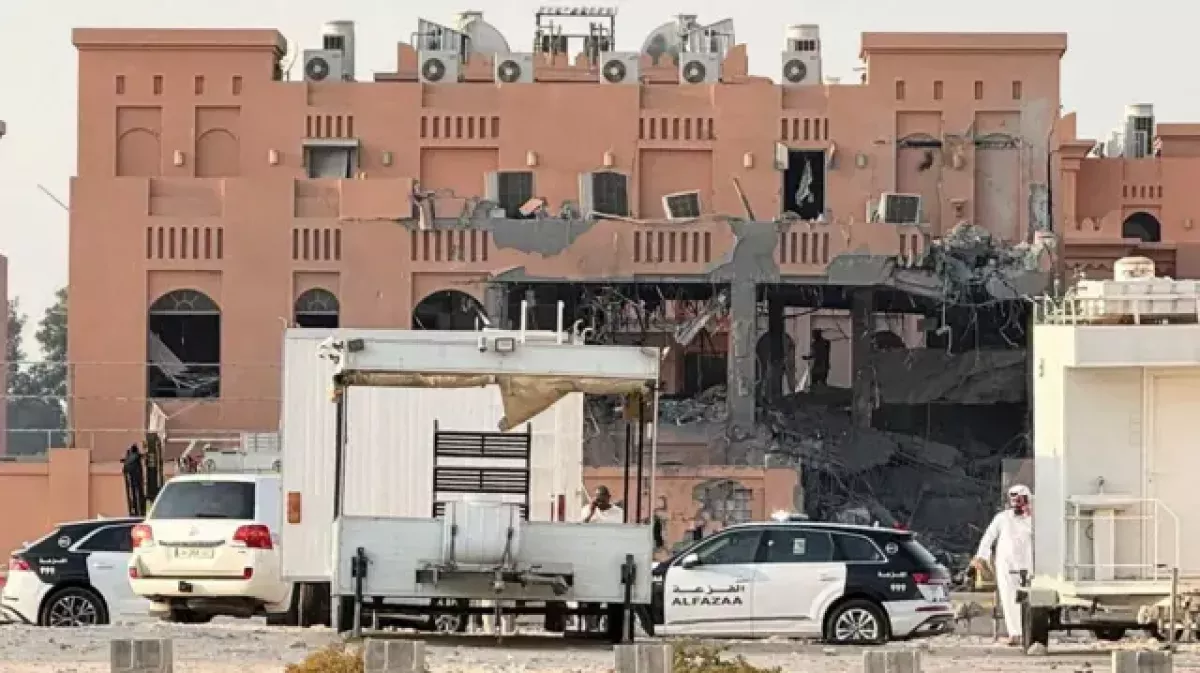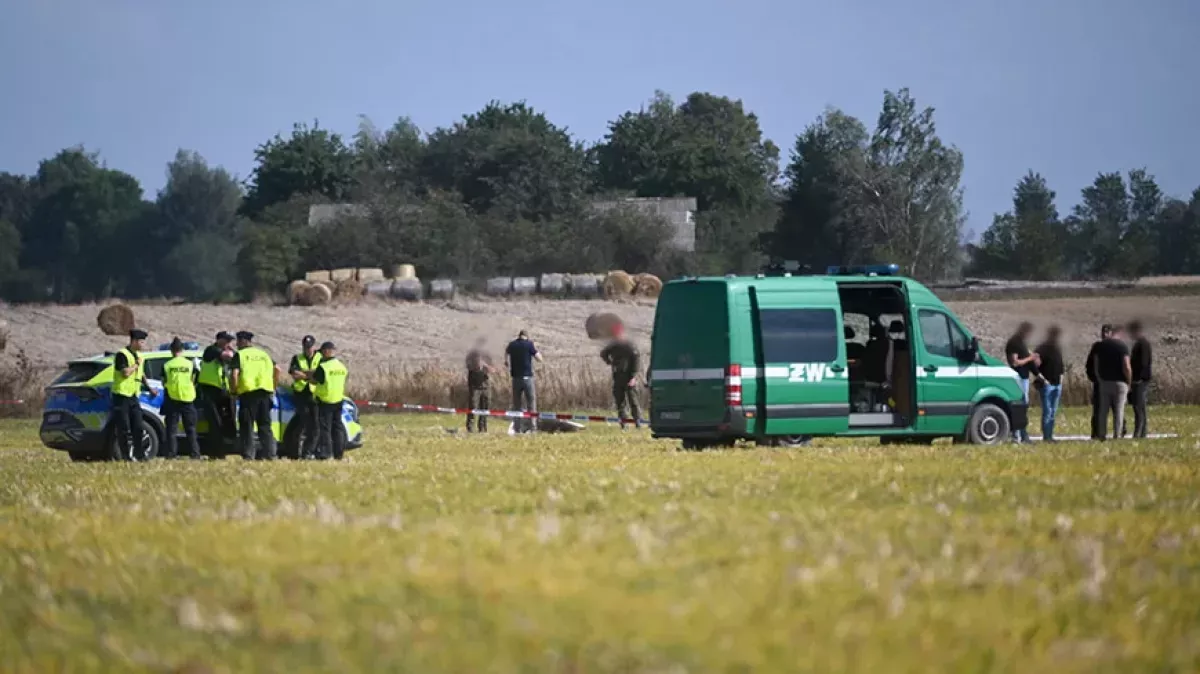Blows to Qatar and Poland expose broken global order Symptoms are clear
On 9 September, the Israeli Air Force carried out a precision strike on Doha, the capital of Qatar, to eliminate the Hamas political bureau. However, to date, there has been no reliable confirmation of the death of any of the leaders of the Palestinian organisation.
In this situation, it is important to focus not so much on the outcome of the attack as on the very fact of its execution: the strike was carried out on the capital of a sovereign state, an ally of the United States, which also bears the costs of maintaining the American military base on its territory. From the perspective of international law, the Israeli attack constituted a direct violation of the emirate’s territorial integrity, since Qatar is not some “failed state.”
Israel has demonstrated determination and toughness toward its enemies, but this could negatively affect the already complicated position of the Jewish state on the international stage. Qatar called the attack an act of “state terrorism.” Saudi Arabia, Türkiye, Kuwait, and other countries also joined in condemnation. Naturally, Tel Aviv understood the risks, yet still prioritised its objectives and launched the strike, given that Hamas’s leadership has long shown no willingness to alter its maximalist rhetoric, obstructing all proposals and putting forward conditions unacceptable to Israel, which has set two goals in this war: to destroy Hamas and to free the hostages held in Gaza.

It seems likely that negotiations with Hamas on the release of hostages and a ceasefire will continue. The only question is how the attempt to eliminate the group’s leadership in Doha will affect the negotiation process and under what conditions it will move forward. Israel’s actions may pressure Hamas into greater flexibility, or conversely, prompt the group to harden its stance. Should the latter occur, it is more likely to be temporary rather than long-term.
In the past, Israel waged war under the principle of “finishing quickly,” achieving tactical successes without pursuing strategic objectives. However, the reality for Israel and the entire Middle East changed on October 7, 2023, the day Hamas carried out its terrorist attack on Israeli territory. Tel Aviv adopted a new strategy: to reshape the Middle East by striking Iranian proxies across the region, unafraid to take the boldest steps to safeguard its interests and achieve its war aims.
It can be assumed that Qatar and other states will limit themselves to condemning Israel’s actions, and nothing more. The difference now is that the immunity once enjoyed by Hamas leaders in Doha has ended. Even if Israel’s latest operation failed to eliminate the group’s leadership there, it matters little: it is now clear that Israel will track them down and strike again if necessary, regardless of where the target is located.
As for the so-called “large-scale provocation” against Poland, in the words of Prime Minister Donald Tusk, it was not a “provocation” at all, but rather a deliberate Russian attack on a NATO member state. Why did Russia’s leadership take such a risk? To answer this, one must recall events from the recent past.

After Russia’s military invasion of Georgia and the occupation of Abkhazia and South Ossetia, the West limited itself to condemnation and symbolic measures, imposing no serious sanctions. This became a signal to the Kremlin: borders could be shifted by force at will, without real consequences. In 2014, following the annexation of Crimea and the start of hybrid warfare in Donbas, the Western response was, of course, tougher: sanctions, exclusion from the G8, and more. Yet even then, the measures proved insufficient — Russia continued to trade oil and gas with Europe in large volumes, it was not disconnected from SWIFT, and military assistance to Ukraine remained extremely limited.
The indecisiveness of Western politicians reinforced Moscow’s belief that the West feared direct confrontation. That belief turned out to be correct. Ultimately, the weak response in 2008 and the half-measures in 2014 paved the direct road to the full-scale invasion of Ukraine.
Russia has been waging war against Ukraine since 24 February 2022 and, three and a half years later, has still not achieved its objectives. Counting on a swift victory and a parade on Khreshchatyk, Russia’s leadership gravely miscalculated: its troops were met not with flowers, but with blue-and-yellow flags, bullets, and resistance. This war is a direct threat to NATO, Europe, and the entire Western security system, as well as to the post-Soviet states.
Moscow’s goal is the restoration of an empire and its influence, at the very least within the borders of the former USSR. With a rapid victory over what Kremlin propaganda calls the “Kyiv regime,” it hoped to restore superpower status and place itself on par with the United States and China. Yet, as we see, despite the failure of these plans, Russia has not faced a truly tough response from NATO and the international community. Its impunity since the invasion of Georgia is the root cause of today’s behaviour.
Russia is almost certainly planning aggression against NATO — and in fact, it has already begun. Nearly the entire eastern flank of NATO is at risk, especially the narrow and vulnerable Suwałki Corridor, the only land link between the Baltic states and the rest of the alliance. Russia could cut off the Suwałki Corridor even without deploying ground forces, relying instead on artillery and airstrikes.
At present, Poland is closing its border with Belarus and redeploying 40,000 troops to the frontier.
It seems that today’s NATO is an ineffective organisation, lacking both the will and, at the same time, the courage to respond adequately even to a direct attack on a member state. Moscow sees this clearly and has long sought to test the resilience of the North Atlantic alliance. NATO limits itself to expressions of “deep concern,” which only increases the risk of large-scale escalation. Incidents like the drone attack on Poland are likely to be repeated, as they carry not only political but also military significance: testing NATO’s response and gathering intelligence on air defence systems.
What can be concluded from these two events? They clearly demonstrate how broken and ineffective the modern system of international relations has become. Sovereign borders and international law no longer guarantee security, and deterrence mechanisms such as the UN and NATO prove their ineffectiveness. This raises the risk of new conflicts at a time when one global conflict is already in full swing.
By Riad Hamidov








